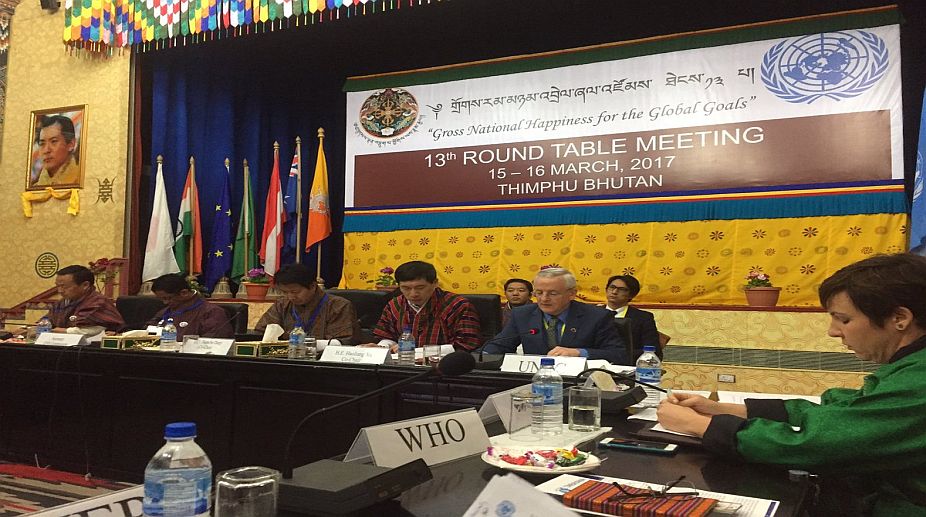Forgotten heroes
Ullaskar suffered immensely after being caught by the British and was sent to the Cellular jail in the intractable Andamans.

Thimphu Declaration (PHOTO: TWITTER)
Bhutan, as a constitutional monarchy for the past decade, has acted assertively yet again, free from its perceived status as India’s protectorate. Exactly a year after it signed the Motor Vehicles Agreement in league with India, Bangladesh, and Nepal, the elected government in Thimphu has notified its inability to ratify the watershed agreement on the use of roadways, collectively referred to as the BBIN pact. That convenient abbreviation for Bhutan, Bangladesh, India and Nepal has for now been reduced to irrelevance. So independent a course of action in foreign policy would have been inconceivable before 2007, when the momentous transition from a friendly monarchy to an elected democracy was effected. Arguably, its decision to pull out of the pact is an afterthought.
There is little doubt though that ecological considerations have been accorded precedence over sub-regional cooperation in the segment of connectivity across four nations. It shall not be easy for the three remaining member-states ~ India, Bangladesh and Nepal ~ to sustain the plan, as envisaged in 2014 and as now echoed in Bhutan’s appeal to the other stakeholders to go ahead with the project. This is the flip side of the connectivity coin when one reflects on the anticipated benefits of last month’s Modi-Hasina agreement on transportation. As critical as the jolt that the three countries will have to contend with is the setback that SAARC has suffered, not least owing to the withdrawal of a tiny Himalayan country that was, till not so long ago, India’s only friend in the region.
Thimphu’s decision ~ or is it a snub? ~ is not political, though the diplomatic impact will be collateral for all the countries involved. There is concern in Bhutan over the extent of environmental damage that the picturesque country would suffer with a dramatic increase in vehicular traffic and the resultant air pollution.
Advertisement
Thus far, it has been free from the twin hazards; hence the compulsion to go off at a tangent. Clearly, the administration in Thimphu has deferred to the sensitivities of the people, and on an issue that could impair the unique concept of Gross National Happiness. In retrospect, the MVA was jinxed even before it was inked as Pakistan refused to be party to the project during the SAARC summit in Kathmandu in 2014. Quite obviously, it had reservations over India’s pivotal role in the arrangement.
Now, Bhutan despite its circuitous access has pulled out of the engagement. Ergo, India will have to play a crucial role in negotiating with Bangladesh and Nepal if the international agreement is to attain fruition. Narendra Modi’s initiative on sub-regional cooperation ~ to circumvent Pakistan’s rejection ~ has hit the bumps even before the engines could be revved.
Advertisement